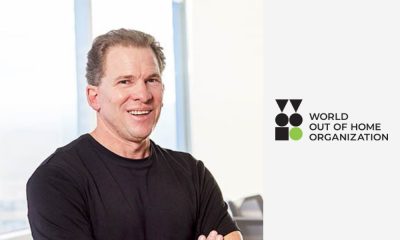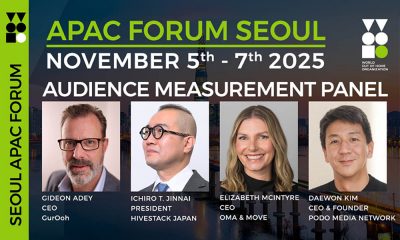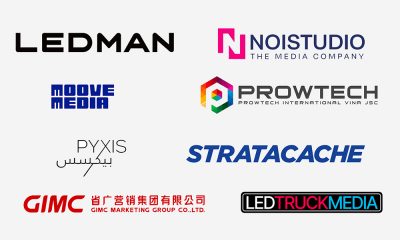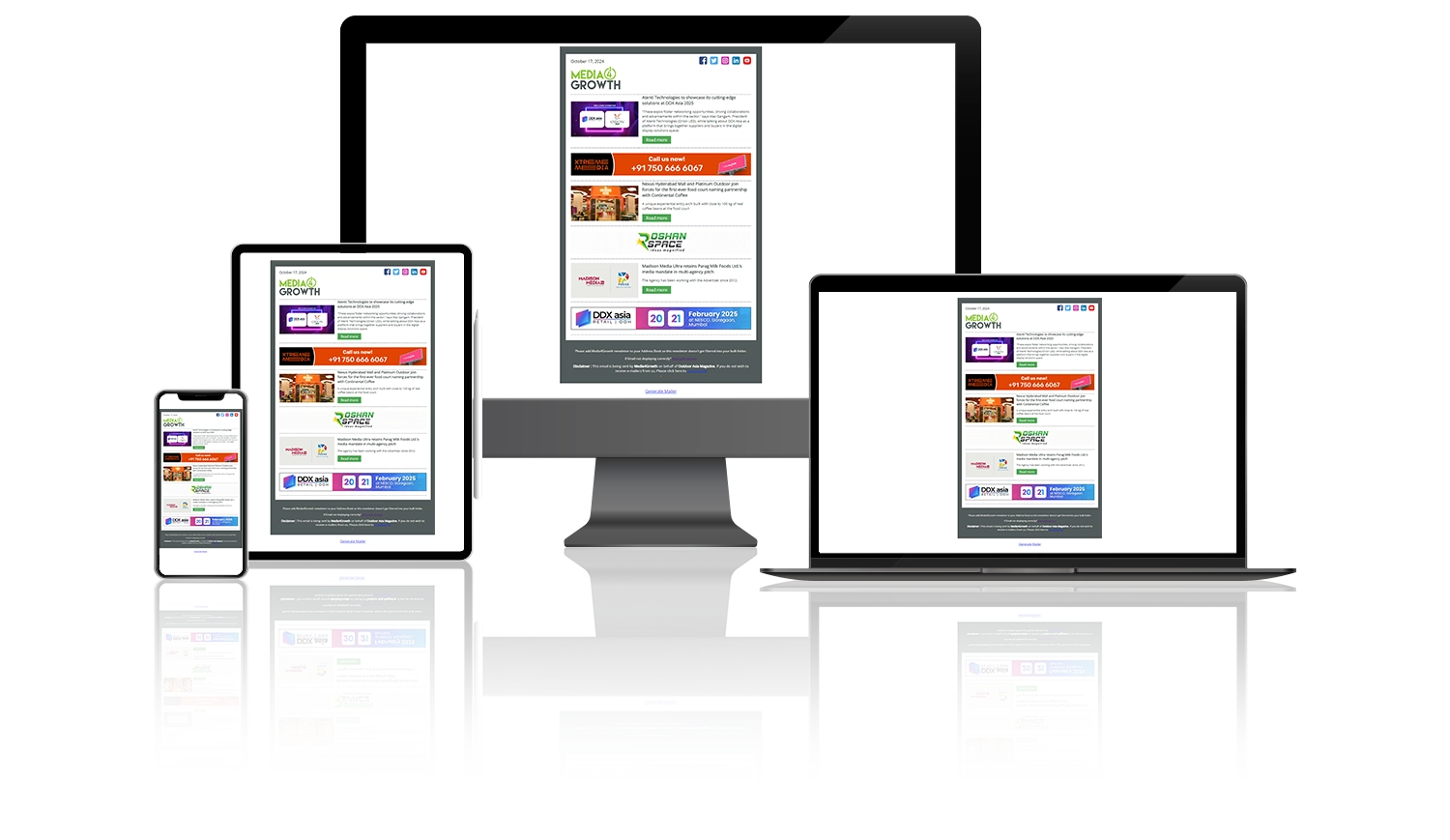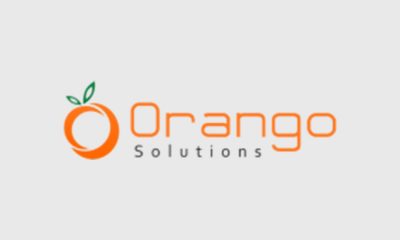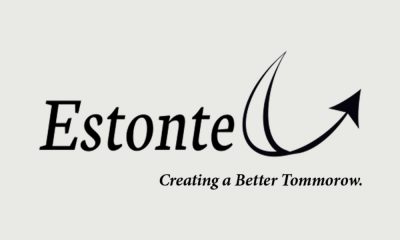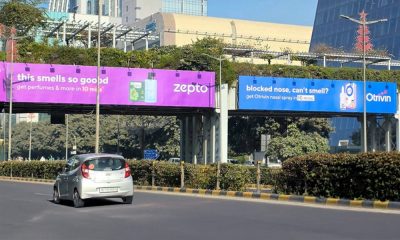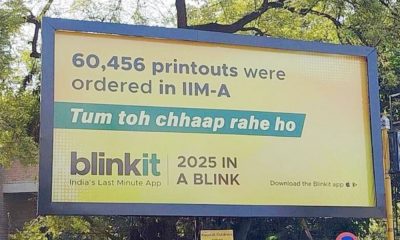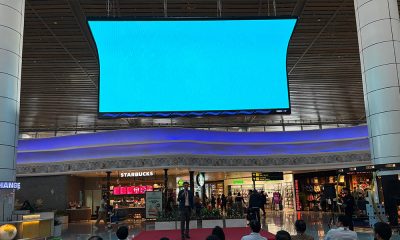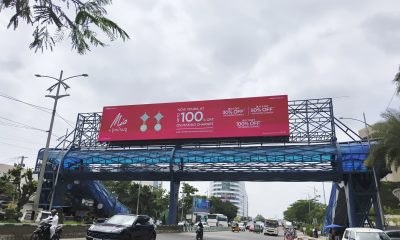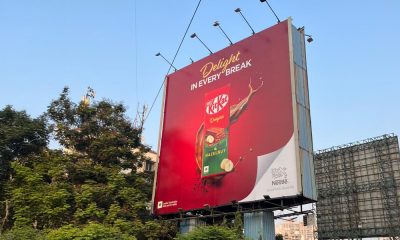International Events
Industry regulation, amplification of positive contributions, data & tech focus key to sustained OOH growth
Tom Goddard, President, World Out of Home Organization (WOO) anchored a discussion on ‘Sector Growth’ with the participation of Martin Sabbagh, CEO, Middle East & Africa, JCDecaux, Dawn Rowlands, CEO, dentsu Sub-Saharan Arica, Jacques du Preez, Founder & CEO, Provantage Group, and Adrian Skelton, Managing Partner, Talon Outdoor.
A unified voice is of utmost importance for the OOH industry, especially in Africa. Stating this in his opening remarks in the session on ‘Sector Growth’ at the WOO Africa Forum organised in Cape Town on March 11-13, Tom Goddard, President, World Out of Home Organization (WOO), said that along with more effective marketing strategies, suggestions have come up for the establishment of regional bodies on the lines of SADC, ECOWAS or the East African Association, potentially leading to a larger African association in the future. Tom anchored a panel discussion on this theme, with the participation of Martin Sabbagh, CEO, Middle East & Africa, JCDecaux, Dawn Rowlands, CEO, dentsu Sub-Saharan Arica, Jacques du Preez, Founder & CEO, Provantage Group, and Adrian Skelton, Managing Partner, Talon Outdoor.
“These proposed associations would have several key responsibilities. Firstly, managing research and data effectively emerges as a top priority. Additionally, there is a clear call for an industry body dedicated to marketing that can facilitate smoother transactions for media agencies and clients. These are initiatives that must be addressed with urgency. Equally vital is the aspect of regulation,” Tom said, as he set the context for the discussion.
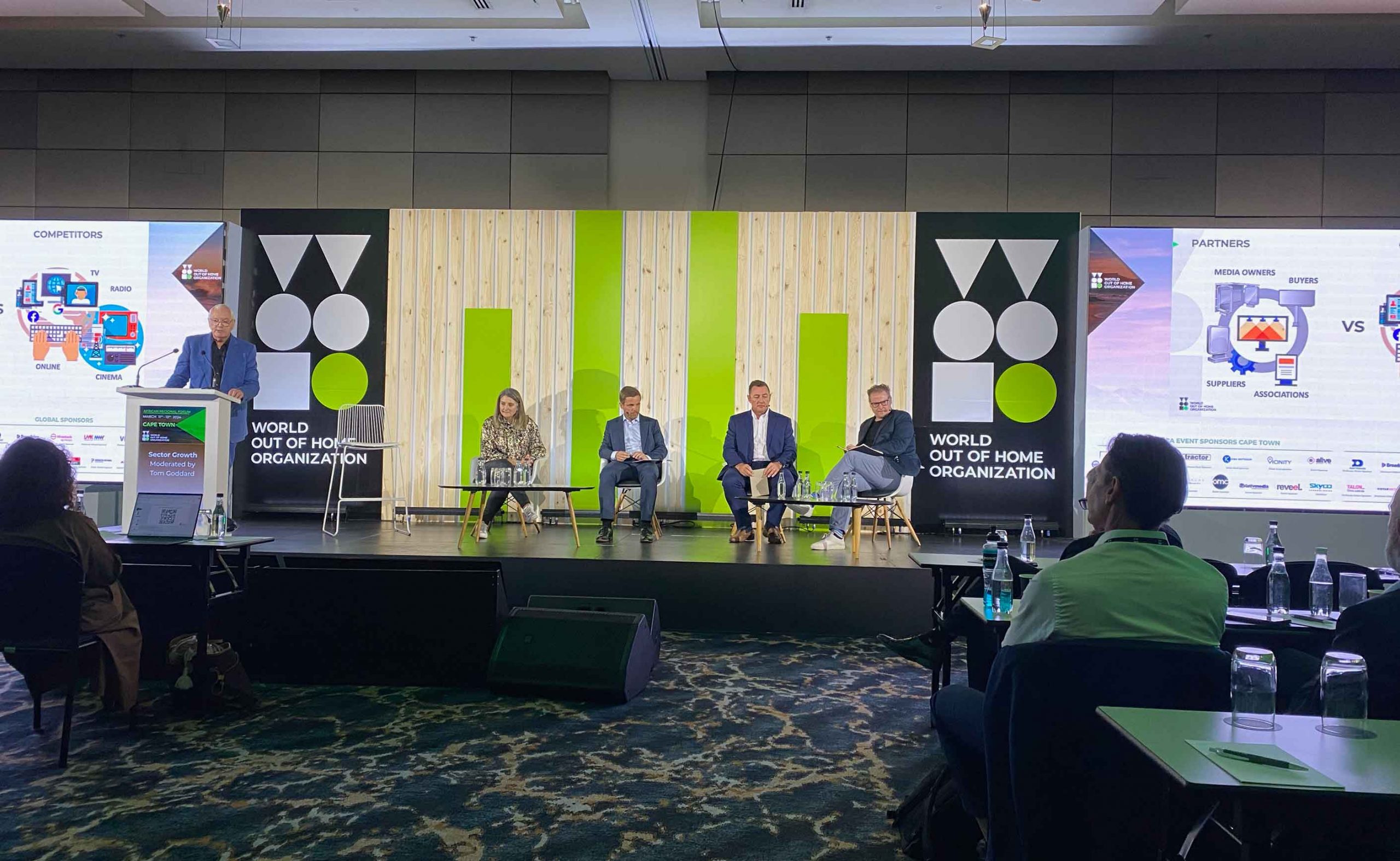
He pointed out that a robust regulatory body is seen as essential to engage governments at all levels in implementing industry regulations. The absence of such regulations could result in fierce competition and reduced opportunities across many African cities. The situation calls for decisive action to prevent a future where a larger number of industry players compete for increasingly scarce resources.
Taking the discussion forward, Tom sought Martin’s observations on the steps to be taken for African OOH to achieve accelerated growth. While there is the big challenge of aligning 2,500 market participants to a global strategy, Martin said there is a call to focus on African best practices. “Notably, in Nigeria, particularly within the city of Lagos under LASSA’s leadership, there exists a well-regulated industry framework. Despite macro-economic challenges, the industry’s framework stands out as exemplary on the continent, benefiting all involved. This suggests that rather than looking to Europe, the US, or Australia, Africa itself offers strong examples that simply need implementation.”
Martin exhorted the industry to amplify the message that OOH advertising contributes to some 40% revenue accruals to the local urban bodies in the form of taxes, which get ploughed back for city development and related areas. Besides, the industry contributes to direct employment generation. “A global study commissioned by JCDecaux, applicable to Africa, reveals that for every JCDecaux job, approximately 600-700 employees are supported in Africa. Essentially, one JCDecaux job leads to ten direct jobs,” he added.
He also stated that the industry’s impact extends beyond revenue, transforming city aesthetics and providing essential services such as touch centres and public amenities. For instance, in Lagos, digital screens offer valuable traffic information through private sector initiatives.
The fundamental message of the industry’s substantial positive contributions remains strong, he said. “This prompts a reflection on how to effectively communicate the undeniable benefits of the industry to stakeholders, including public bodies, regulators, and local councils. Such efforts aim to foster a sense of belonging within the ecosystem and advocate for effective regulation,” said Martin.
Collaboration and standardisation are key to sustained OOH growth. Speaking on this imperative, Adrian said, “In our extensive work spanning over 60-70 countries last year, we’ve gleaned invaluable insights into the diverse standards across markets. Key to driving growth universally are three pivotal factors. Foremost is audience measurement, offering planners like us the essential data bedrock for planning and substantiating outcomes. This approach yields tangible data points crucial for sales strategies. Secondly, there is the need for robust verification, not solely of display but also of purchased locations’ legality and quality, within market parameters. Lastly, the imperative of demonstrating effectiveness in Africa looms large, acknowledging market nuances while underlining its critical role in our industry’s growth trajectory. These factors, tailored to diverse market stages, form the cornerstone of our strategic endeavours, propelling us towards comprehensive growth and impact across regions.”
Adrian noted a shift from the “guess economy” to a data-driven approach in the industry. He emphasised the importance of demonstrating the impact of advertising on sales and other key metrics to clients. By getting audience measurement, verification, and effectiveness right, he believed it builds trust in the medium. This increased trust leads to clients feeling more confident to invest more in advertising, ultimately driving growth in the industry.
Adding to this, Dawn said, “Firstly, I’d analyse the competitor landscape to proactively manage known threats. Secondly, I’d recognise the industry’s ecosystem dynamics amid declining ad spend. Many clients express intentions to cut ad budgets and prioritise CRM and performance media, leveraging their massive social engagement numbers. Every client seeks to optimise their data for better targeting and engagement. Major retailers charge up to $3 million annually to refine audience data, reflecting a growing trend of clients building their own ecosystems.
“Over the past decade, clients have increasingly focused on developing their own media platforms: magazines, websites, and movie channels. Unforeseen competition may arise from these evolving client-owned media landscapes.
“In this hierarchy, clients are prioritising communication with their own audiences first, followed by those they aim to reach. Our challenge lies in demonstrating how OOH advertising drives audience growth and complements their existing knowledge.” To achieve this, Dawn said the industry must focus on understanding data integration within their ecosystem.
On the issue of industry self-regulation, Jacques said it’s crucial for both cities and governments to take on effective regulations. “Equally important it is for us to reflect on the social impact we’re creating. Urban pollution, both visual and environmental, is a significant issue in many cities. We must acknowledge our role in this.”
“We have the potential to make positive changes. If we come together as an industry, we can establish fair regulations that foster innovative growth. Additionally, we can contribute to social projects and support upliftment initiatives,” he said.
“Creativity is crucial. We all recognise the impact of TV commercials in our digital media flights. That’s why we’ve established a digital content agency dedicated to crafting specialised and purpose-driven creative content for our platforms. However, there’s a broader perspective to consider. Many of us are working in silos, making it challenging for media agencies and brands to navigate. We need to move past the idea that we’re just about billboards; there’s so much more. Our involvement spans sports, daily advertising, and the vibrant “third spaces” where people spend their time,” he said.
When asked whether clients concern themselves with engaging with ethical OOH companies, Adrian said while some clients may not be focused on the ethical aspects yet, they will soon have to consider them. On the other hand, more and more clients are emphasising on these areas. “They’ve made it clear to us, as their supplier and agency, that we need to adhere to specific guidelines in the coming years to maintain our partnership. This trend is becoming more prevalent, leading to increased discussions with media owners on this issue.”

